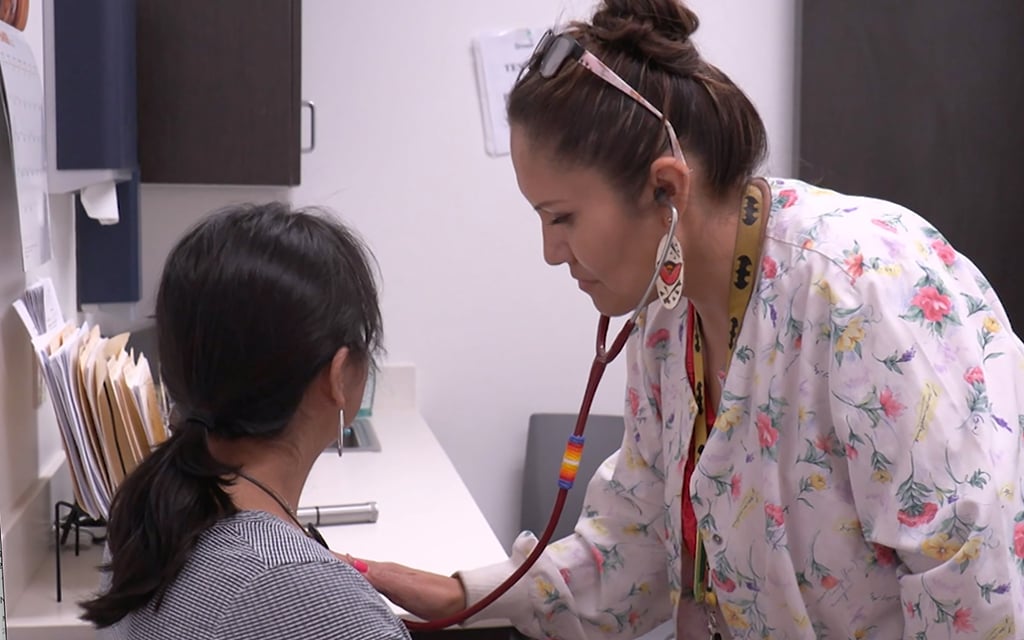WASHINGTON – A record number of Arizonans signed up for health insurance this year under the Affordable Care Act, as enrollment in the program continues to rebound from the Trump administration’s efforts to suppress coverage.
The 235,229 Arizonans who signed up in the enrollment period that ended Jan. 15 were part of 16.3 million people nationwide who got coverage from the “Obamacare” marketplace, also a record for covered individuals.
Advocates credited the increase to aggressive efforts by the Biden administration that included a longer enrollment period and an extension of financial support for the federally subsidized health care that they say allows some low-income clients get coverage for as little as $10 a month.
That benefits both patients and providers, said Claudia Maldonado, director of outreach and enrollment at the Arizona Alliance for Community Health Centers (AACHC).
“They (patients) don’t have to wait to get sicker to go to the emergency room because now they can go see their primary care doctor,” Maldonado said. “We then also have less uncompensated care where the hospitals and even the health centers are treating patients that don’t have any coverage.”
It’s a sharp turnaround from the declines – which were steep in Arizona’s case – under the administration of President Donald Trump, who trimmed funding and outreach and shortened the open enrollment period in an effort to handicap the ACA. President Joe Biden reversed those efforts shortly after taking office.
“We’ve made record-breaking progress in expanding coverage and lowering health care costs for American families, saving them money and giving more Americans the peace of mind that comes with affordable health insurance,” Biden said in a statement released Wednesday.
According to data released Wednesday by the Centers for Medicare and Medicaid Services, enrollment in Arizona rose by 35,523 individuals, almost an 18% increase from last year to this. Nationally, enrollment rose from 14.5 million to 16.3 million, a 12.3% increase. Overall enrollment has grown more than 50% since Biden took office.
The Affordable Care Act, often called Obamacare, was passed in 2010. The law expanded covered services and extended the time that children could remain on their parents’ plans, among other provisions. But the biggest change was the creation of private-insurance marketplaces that came with heavy federal subsidies that allowed low-income individuals and families to afford care.
“Instead of somebody having to pay the full premium that would be there for the ACA, the federal government is subsidizing that for a large percentage of the population,” said AACHC spokesperson Jennifer J. Burns. “Then they’re paying significantly less, even down to $10 a month for their premium instead of more.”
ACA enrollment also got a boost from the passage last year of the Inflation Reduction Act, which extended Obamacare subsidies through 2025. Because of the act, a middle-class Arizona family of four could save $4,763 on their annual premiums, said Jeffrey Reynoso, the Department of Health and Human Services regional director for Arizona.
“I think when you make health care more affordable people are going to sign up for the coverage,” Reynoso said. “We saw the largest gains and coverage for some of these historically demographic groups (that) have been locked out of health insurance, and that includes low-income folks, young adults, Latino, American Indian, Alaskan native and non-English speaking individuals.”
Extending the open enrollment period also provided needed time for ACA enrollees to work with insurance “navigators” who can help them figure out the process and find the insurance plan that works best for their circumstances, said Dr. Daniel Derksen.
“It can be very confusing to individuals when they’re trying to navigate through the eligibility enrollment system,” said Derksen, director of the Center for Rural Health at the University of Arizona.
“Most of the stuff is online, and it can be a challenge if you don’t have reliable broadband and internet access, or (if) you’re not really that comfortable with the online technology to provide that in-person or telephonic assistance,” Derksen said.
Arizona Public Health Executive Director Will Humble said the selection of health care plans in Arizona was limited before the ACA passed. Now that the state has eight different plans people can choose from, he says Arizonans can have stable medical care without being “handcuffed to their jobs” and even if they face changes in income.
“The marketplace in 2023 I think is going to be more important than ever,” Humble said. “The portability of insurance is so important for people who want to make a change in their career.”
Burns said the ACA has especially opened doors for Arizonans in health care limbo, including those who could lose Medicaid eligibility this spring, when a pandemic-related expansion of coverage could expire.
“Who does it help? It’s the people who don’t have health insurance otherwise,” Burns said. “They don’t have employer-based insurance, but they also don’t qualify for Medicaid because they’re over-income.”



